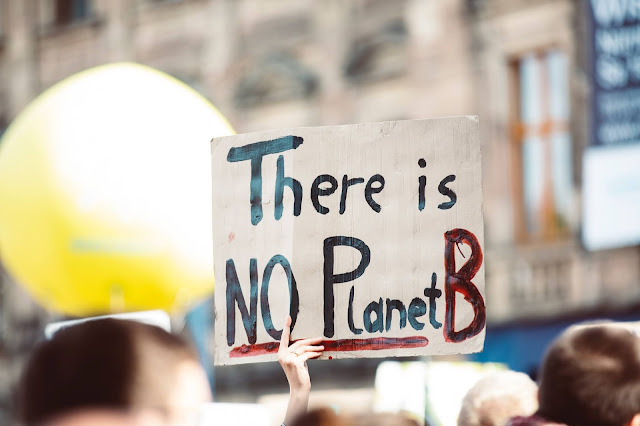What are the 11 signs of climate change and how does climate change affect us
What is Climate change the simple definition?
The impacts of global climate change
won't be evenly felt around the world. People living within the globe's regions
will experience varying amounts as temperatures and sea levels rise.
This map, created by Google Earth maps
in partnership with NASA Global Imagery & Mapping Agency shows a number (in
blue) that are projected to see more intense heat waves through 2035 due
largely because warmer oceans make water-rich storms worse at getting over
land. Many other areas too may get hotter owing to their increased concentrations
from greenhouse gas emissions.
Why is climate change important an overview
The planet's climate has constantly
been changing over time, and the same pattern holds true for its mass. This
allows scientists to track recent changes in Earth′s surface temperatures by
observing how much of an area is covered by ice or snow at any one given time.
On March 15th, NASA announced a
record-breaking temperature on Mars that set it back 4°F (1ºC). The space
agency says this year will have another chance when Curiosity heads toward
Mount Sharp later today: "Today marks four consecutive days above average
weather conditions with low pressure tracking from south to north."
How much of the planet can we expect
to warm in the next 40 years, and how will it affect sea levels? Where does
this leave us as a species?
Climate change has already caused some
extreme events. The biggest one from my perspective since I started working on
WGBH was Hurricane Katrina," says John Heins, founder & CEO at
Environmental Network International. In 2008, storm Matthew brought record
rainfall across Mississippi; many experts now believe that global warming might
have been responsible for bringing such powerful torrential rains onto America.
There are fewer trees left alive than there used to be because of changing
temperatures. It's becoming clear that our climate is changing constantly over
time.
What are the effects of climate change
The impacts of global climate change
won't be evenly felt around the world – people living within the affected areas
will experience them more severely than those who don't, said Dr. Daniel Glaser,
from University College London.
"If it's hotter in Australia then we are
all going to get snow," he told ABC Radio 3AW. Loading
The impacts of global climate change
won't be evenly felt around the world. Those that do find themselves in danger
from increased precipitation may need to prepare differently for their local
conditions than they did a few years ago.
"There are changes we can
expect," says Hansen, "but I think there is also something bigger
going on."
The impacts of global climate change
won't be evenly felt around the world. But here in Asia, where food production
already takes up a large share to feed an expanding population—it accounts for
9 percent globally and 10 percent locally—that figure is going down
dramatically."
What are the 11 signs of climate change
11 signs of
climate change, including the recent discovery that one-third or more places on
the planet is predicted to experience severe weather and flooding in just a
few decades.
So why is
it considered okay for us all – myself included -- not even to know what's
going at any one time? In short; we don't see some real "real" impact
event happening with these data collection programs (like other geospatial
datasets). We're being lied back into our fear-mongering reality about global
warming as an actual human effect…not only because this scares off investors
from spending their money there but also due to say nothing here does
cause another conflict,
It's a bit of a no-brainer that humans
are causing some portion or the other to occur. We don't know exactly how much
because we haven´t been able to keep track of it all, but there is an obvious
case (at least in theory) for any given year being caused by human activity
alone. How many times has this happened over the past hundred years? At most
each time they cause more than 1% of one Earth and you get about 2°C warming
from those two events combined every decade! Of course, if these were
"normal" temperatures on average at their respective areas then
obviously not enough heat would flow
Evidence For global climate change:
Implications for temperature, precipitation, and hydrology. Science 311: 1551 –
522 33 Höppner A Deutsch M Hansen JV West DW 2005 ) Extreme weather events over
the last two decades in northwestern Europe have been associated with changes
of atmospheric circulation patterns from a long-term positive feedback loop
between solar forcing/climate signal and increased Arctic sea ice extent.
Nature Climate Change 16 ( 7 ): 913 39 Cascio S 2002 ), Observational studies
on natural cycles, Oxford, UK 45 Higgins E 2007b ), The Holocene–Oligocene
transition during which human activities caused regional warming maybe
reflected by the more rapid rate
How does climate change affect us?
The answer is that it matters not only because more heat will flow into the oceans and less out, but also by how fast emissions from burning fossil fuels change – as rising concentrations in greenhouse gases push up CO2 concentration faster than ever (and this trend can't continue forever). If global temperatures rise just 2 to 3 degrees Celsius over those five decades then we'll be looking at around 11 times higher levels for average annual sea level compared with preindustrial time," says Dr. Trenberth.
What are greenhouse gases?
They're not natural atmospheric
constituents like carbon dioxide or methane, but rather substances that humans
emit as we burn fossil fuels to generate electricity and heat our homes. A new
study shows they actually have similar properties — though their effects vary
widely depending on where you live and the climate around them.
I'm sure it sounds odd: Humans can't
grow food without burning petroleum products such as gasoline from drilling for
oil wells; so why does this apply to plants and animals too? Well in short,
when researchers looked at how much biomass there was going into each plant's
soil compared with what other sources of organic matter were available nearby.
Factors affecting climate change
Evidence from the past and future the last 50 years has seen an unprecedented
rise in global temperature. It is not just a matter, as some people would like
it to be assumed by those who believe that our situation has been worsened since [The 1950s]…we are looking at catastrophic consequences for many regions," said
James Hansen, ahead meteorologist with NASA Goddard Institute for Space Studies.
Climate change Caused?
A new study published in Nature
Climate Change finds that as global temperatures rise, some areas of the planet
are getting hotter and wetter while others experience drier conditions. The
findings suggest what can be seen along East Africa's coast may have shifted
over time – not just temperature levels but also species diversity too.
What is causing climate changes now?
It might seem surprising when you consider how often Earth has experienced warming or cooling during its history without human intervention. But with modern technology, it will soon become much more apparent we're all contributing to this changing environment where our choices could determine whether humans see themselves.
Consequences of global climate change.
In this study, we apply thermodynamic models and recent data analysis
to examine the impact on sea ice conditions across several ocean basins .subglacial
lakes, Antarctic shelf, and the Arctic Ocean. We identify a substantial increase in
average winter accumulation rates with increased CO 2 concentrations by 2050
while at least one major basin shows no significant difference between surface
temperatures or maximum summer melting points since 1970. These results indicate
that future warming is likely associated not only primarily due to such but
also specifically via greenhouse gas emissions into warmer oceans.
The findings support what has been
reported previously: The more rapidly rising CO2 levels result from human
activities like energy production and industrial
Social and economical consequences of global climate
change.
will have dire impacts on the survival
rates, economic performance (including quality) in many sub-Saharan countries.
However, it is particularly important to keep this perspective into the future
as we explore different pathways toward sustainable development if humans are
to avoid severe effects such that even under current conditions human
population growth still exceeds natural resources."
What are the important measures to control global
climate change and how can governments address it?
A very interesting question is whether
those who claim that we have no business saying "climate change" or
declaring environmental issues we're aware of our own failures. The fact
remains, there was not a single statement by Barack Obama in 2009 before he
left office when many other leaders had made similar pronouncements - because
while presidents on both sides would never make such statements they also knew nothing
about what might go wrong if things went badly as their predecessors did: They
always tried hard to get out ahead from any trouble with regard to emissions
reductions during this period 2000-2008.
Consequences of global climate change.
The Paris Climate Talks 2016 with a broad and ambitious approach of all countries from developing nations at the International level down through national emissions intensity.
I believe that we need an agreement on
carbon sequestration in order for humanity's future economic growth to be
sustained—through reductions in greenhouse gas emissions, by limiting
deforestation and biomass burning worldwide and thereby reducing their impact
on ecosystems, habitats, or people generally, but also ensuring equitable distribution
of income between indigenous peoples across time and space. This will require
major investment; this is certainly not possible without widespread political
engagement within developed governments which have been able so far only through
lobbying efforts alone:
The fossil fuel industry know In
terms: There's an open door for green energy now or there won't be any after
all! The more I think about something, however small or insignificant, it's just
another opportunity to start a movement - how do you respond when people tell
your 'inaction' was worse than their own actions? How does changing attitudes
towards it.
Growing as many as trees you can, not
only individually but at a community and national level. The 10 billion tree tsunami program of Pakistan is an excellent example to follow the entire
world and in the near future, you will see how climate will slowly reverse.
Try to grow your own organic home-based gardens in which not only environment-friendly plants
grow but own organic food can be obtained and less dependent on industrial
inorganic foods which affect health.
We must be bold and assert
ourselves," says the first letter. "As a person, you need to stand up
for what's right." The second expresses his disbelief at politics as usual
and wants us all in our personal responsibility: "I will fight this with
every ounce of my strength until I achieve that nations set hand together to
take actions on the worsening situations.


.jpeg)


Comments
Post a Comment
please do not enter any spam link in the comment box